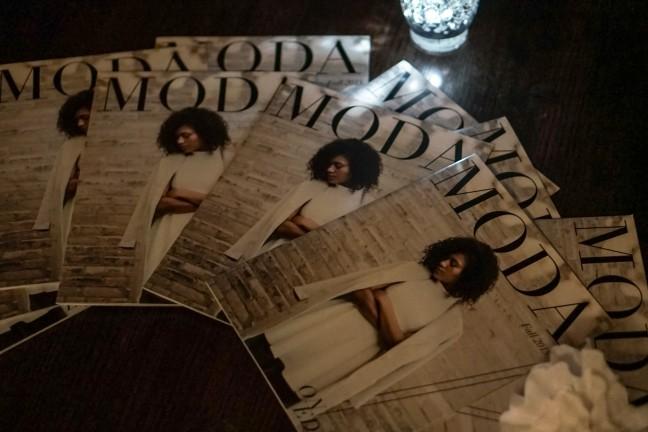Moda Magazine, the University of Wisconsin’s lifestyle magazine, held a virtual town hall meeting Monday to address the controversy surrounding their fall print issue titled “Vicious” and promised structural changes going forward.
Moda editor-in-chief Mason Braasch said in an email statement to The Badger Herald that she is grateful to those who shared their concerns at the meeting and feels that it was a productive first step toward making changes in the future.
Readers raised alarms when Moda posted on Instagram about its fashion editorial photoshoot called “A Girl is a Gun,” which showed models posing with a prop gun. Dozens of comments called the use of the prop tone deaf and insensitive. Moda then deleted the Instagram post and removed the photoshoot from the issue online.
“There’s not going to be those kinds of narratives surrounding guns as a symbol of empowerment if there were a greater sense of diversity in the room, if there were even a person of color there to have an additional perspective on the matter,” former fashion staff writer Zack Zens said.
Though the rest of the fall issue remains on Moda’s website, the editorial board will discuss removing the entire project with staff, Braasch said.
Moda’s photo director Hunter Kiehl said while she was not involved in the creation of the editorial photoshoot, she did disagree with the use of the images, but did not feel like she could share her concerns with the rest of the editorial board.
“I feel embarrassed and awful because I felt uncomfortable by the photos, but I didn’t feel like I had agency,” Kiehl said.
Katie Herrick, who was on Moda’s editorial board in 2020, said the photoshoot wasn’t the only problem with “Vicious.” Herrick said many of the articles within the issue discussed sensitive topics and used potentially triggering language without nuance.
Herrick said it felt like some of the topics, including addiction, added little to the issue itself and served more as an opportunity for graphic design.
Former Moda editor-in-chief Ally Konz suggested that in order to address the structural changes that caused the oversight, Moda should take the spring semester off.
“If this team really wants to make changes… it might be truly worth considering pausing content,” Konz said.
Zens said Moda should consider whether the editorial board’s actions are impeachable according to the organization’s bylaws.
Last year, Zens pitched an idea for a digital issue, which the editorial board renamed and produced while only crediting him for the color scheme, he said. Zens said when he discussed this with last year’s editorial board, he was met with indifference. As a queer man, Zens said it was a struggle to represent men’s fashion at Moda.
“There’s only one person of color … on the board, there are [also] no men involved in the space at all,” Zens said.
Zens’ experience caused Moda to change their issue theme process, Braasch said. Previously, themes were chosen by the editorial board and then presented to the staff, but now the entire staff votes on themes proposed directly by their creators, Braasch said.
The Black Voice PR director Abigail Perkins said Moda will need to hire a professional to address their internal diversity issues instead of relying on BIPOC students to find solutions for free.
“If you truly want to have structural change, you’ll have to dismantle what Moda looks like,” Perkins said.
Editor’s Note: This article was updated to reflect that Moda’s photo director, Hunter Kiehl was not involved in the creation of the editorial photo shoot.













